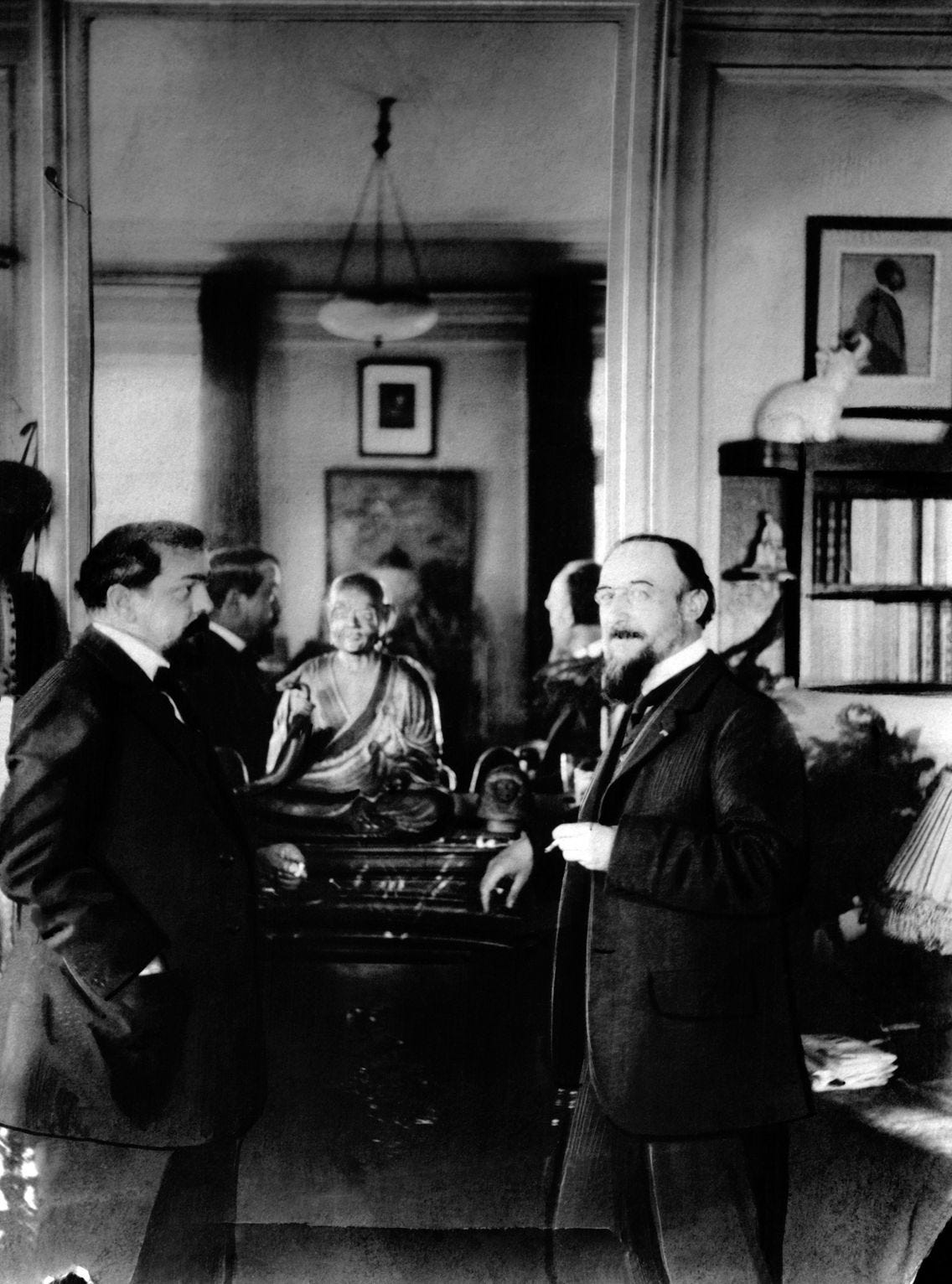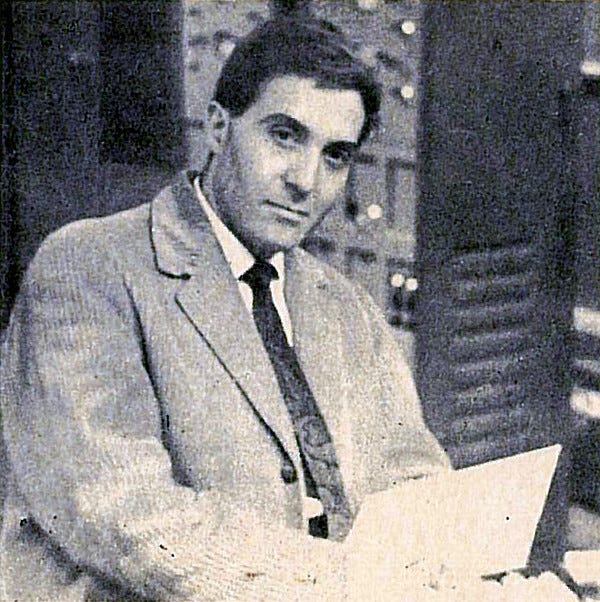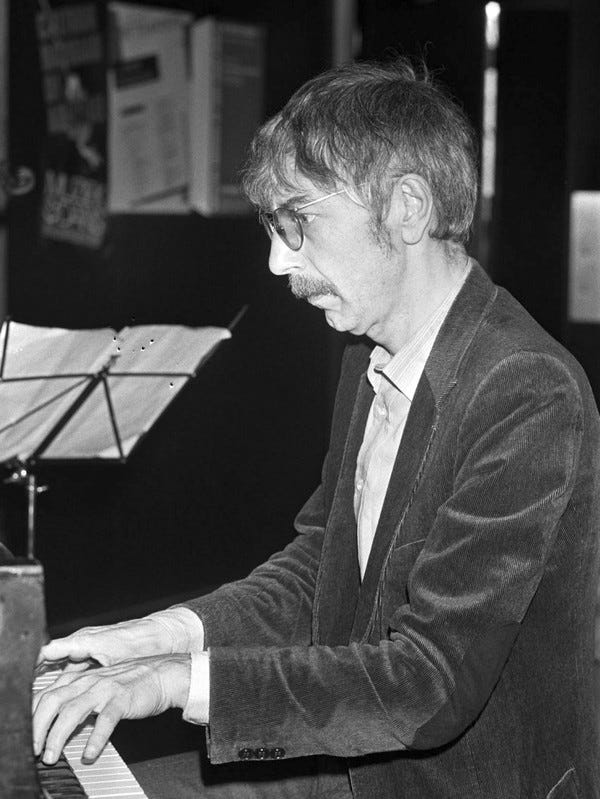Today is May 18. Yesterday was May 17. I'm down on myself because I wanted to write about the French composer Erik Satie on his birthday, which was May 17. Nevertheless, I'm obviously a prisoner of schedules that are not kept. Still, listening to Erik Satie's music is a splendid way of being aware of time-draining away from one's existence. I was very much raised hearing the recordings of Satie's piano music by the French pianist Aldo Ciccolini, born in 1925 and died in 2015. Angel Records put out the three-volume set of Ciccolini doing Satie, with each one a variant of a portrait of Satie by Pablo Picasso. Even without looking at the album cover in front of me, that drawing is tattooed on my brain. There is something cartoonish about this portrait, and what strikes me the most is his hands, which seem to be overly large. It is this part of the portrait that yells out to me, "this is by Picasso!"
As a child, the recordings were either relaxing or boring to me. I didn't love or hate the music. It was just hanging out there like a piece of furniture in the house. I will often be playing with a toy and not even aware of the music, but it didn't strike any emotional response from me when I was aware. It was just something that was there. In my early teens, I found out that Erik Satie was an eccentric figure in the arts. As a youngster, I was always looking toward the oddball who was against the establishment. Around this time, I discovered The Marx Brothers, who used slapstick, and more important to me, verbal talent to overthrow or confuse others in their landscape.
As I got older, I discovered Satie's relationship with the DADA movement, which I found endlessly fascinating. At the time, he was much older than his fellow Dadaist, and it struck me that he must have been an influential figure in their lives. When I read that he had a tailor custom-made 12 velvet suits and purchased an umbrella every day without unrolling the object, it just made me even a bigger fan than before. And when he died, they found his piano in his apartment turned upside down. With all that information in my head, I purchased all the Erik Satie music I could with my limited budget. Thanks to the used record section in stores, I was able to buy all of Ciccolini's recordings of Satie. Both on vinyl and CD. I have noticed that on one of the CDs, it seems that the recording was sped up. To this day, I'm not sure if it was my imagination or sensitive ears that I picked up on this oddity.
Over the decades, I discovered the recording by Reinbert de Leeuw, a Dutch pianist born in 1938 and died in 2020. He made this essential recording of Satie's Vexations, which is a score of a short theme played over and over again. On his album, I believe, 38 times. Satie wrote in his music sheet To play "the piece 840 times in succession, it would be advisable to prepare oneself beforehand, and in the deepest silence, by serious immobilities." In other words, to hear this work properly, it would take 24-hours.
Although I did forget his birthday yesterday, he is very much in my heart 24/7. Satie is the perfect composer for any time in one's life. To dislike Satie is to oppose life.





